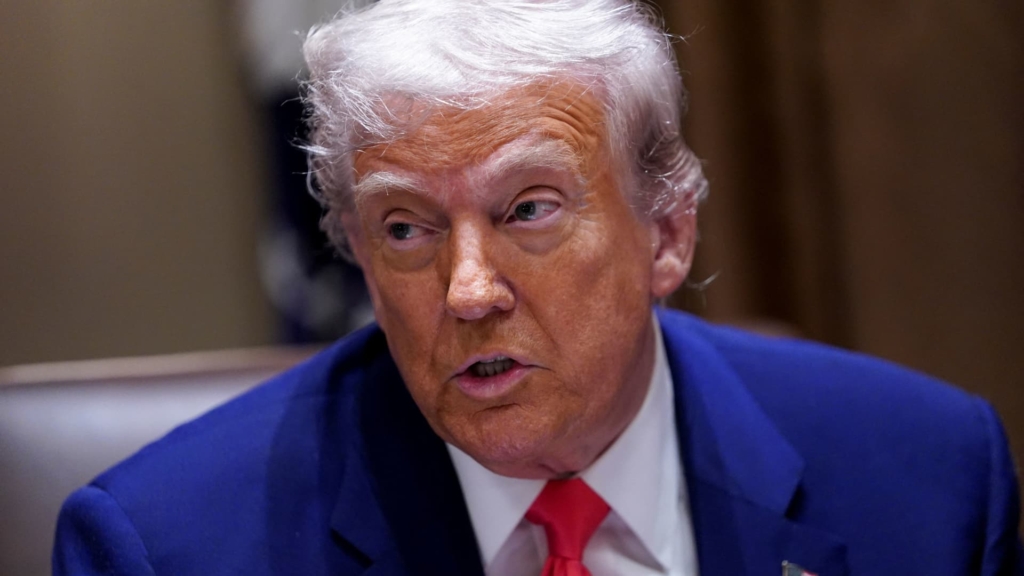According to economist Erica York, President Donald Trump’s recent hike of tariffs on imports from China could significantly reduce trade between the two nations. Speaking on Finance Newso’s “The Exchange,” York noted that if tariffs exceed 100%, it could lead to a near-total trade shutdown.
“It depends on how narrowly or broadly the tariff is applied, but generally speaking, tariffs surpassing triple digits will cut off most trade,” explained York, who serves as the vice president of federal tax policy at the Tax Foundation’s Center for Federal Tax Policy. “Some companies may still bear the costs for essential items with no substitutes, but overall, the tariff would largely sever trade relations.”
Her comments came as the market experienced a downturn, erasing some of the significant gains from the previous day. The sell-off intensified after a White House official confirmed to Finance Newso that the current U.S. tariff rate on Chinese goods has reached 145%. This figure accounts for the recent increase from 84% to 125%, announced by Trump on Wednesday, in addition to a previously established 20% duty on fentanyl-related imports.
York remarked that the market’s situation remains precarious, indicating that the threat has not entirely dissipated, especially with no anticipated clarity on tariffs until a scheduled review in July.
On Wednesday, Trump declared a temporary reduction in tariff rates on imports from most nations, excluding China, setting the rate at 10% for a period of 90 days. During a Cabinet meeting on Thursday, he did not dismiss the possibility of extending this reprieve beyond the initial timeframe.
Despite this temporary pause, Trump’s approach to tariffs puts the United States in one of its most protectionist positions in decades, with the current average tariff rates still expected to rise to levels not seen since the 1940s. York emphasized the economic consequences of this shift, calling it a “significant economic hit” that is likely to hinder growth.
The Tax Foundation projects that Trump’s new tariffs will result in an increase of $171.6 billion in federal tax revenues this year, marking the largest tax increase since 1993, surpassing those initiated by former Presidents George H.W. Bush and Barack Obama.
In response to escalating trade tensions, China has indicated it will not back down, having raised its retaliatory tariffs on U.S. imports from 34% to 84%, effective Thursday—just hours before Trump’s announcement regarding the tariff pause.


























